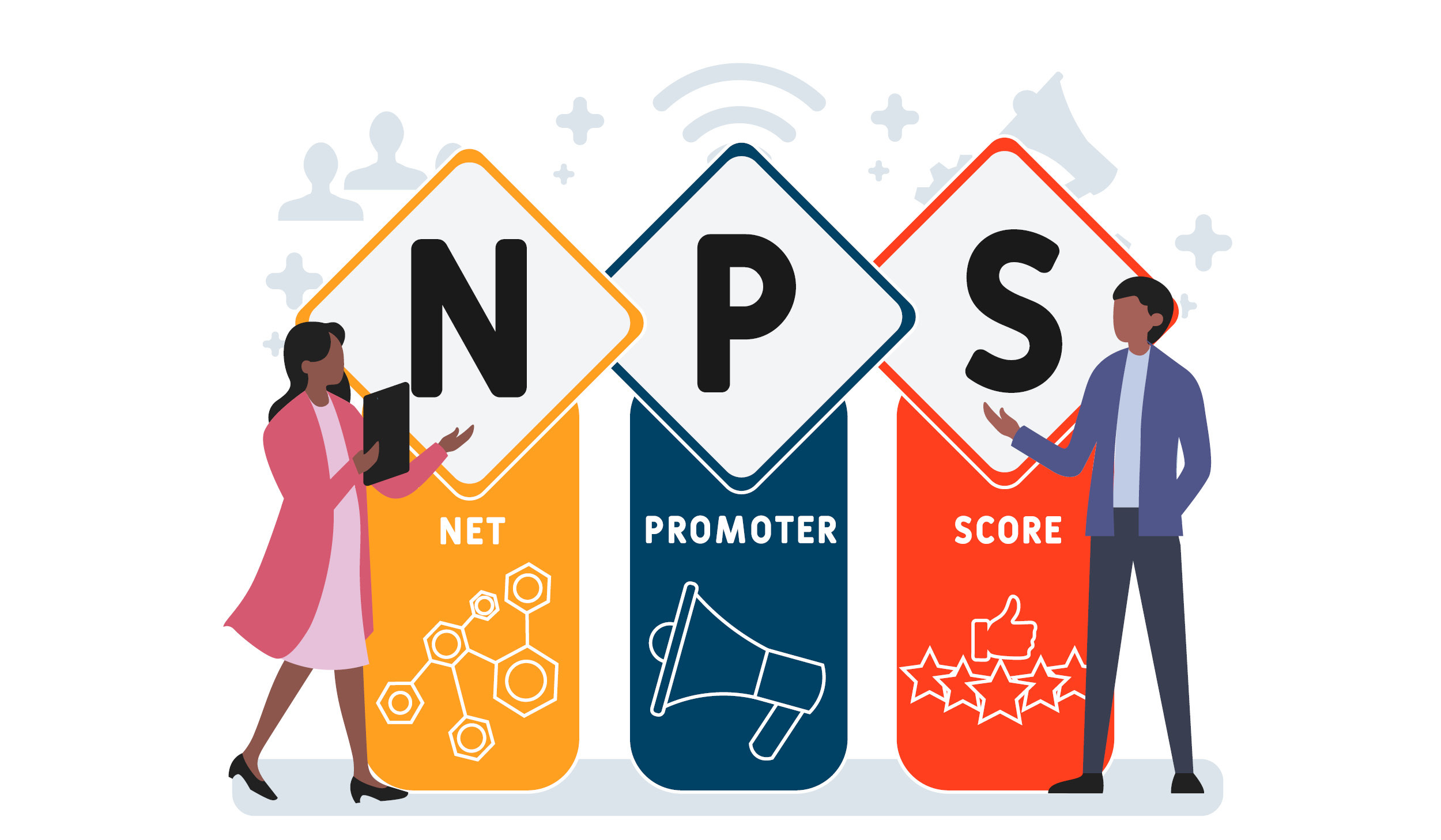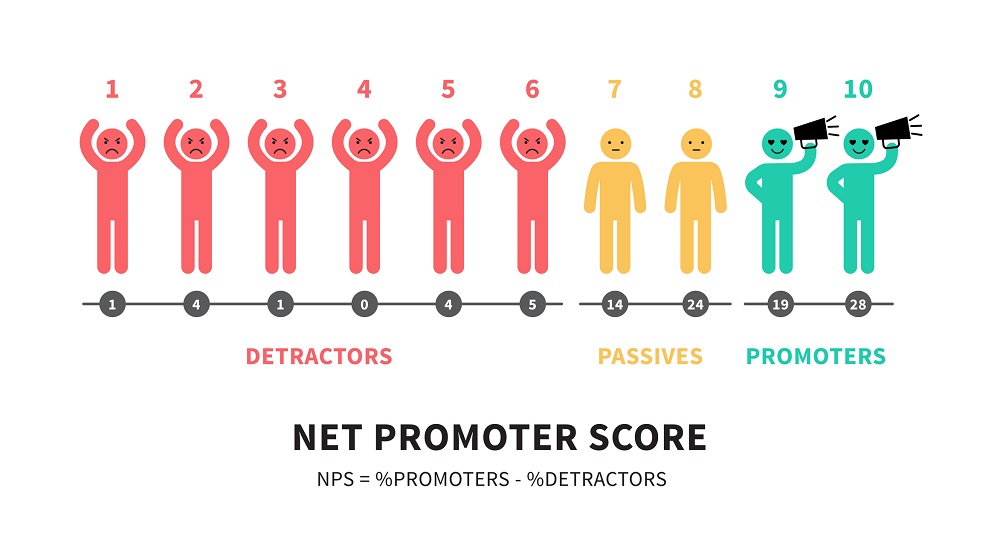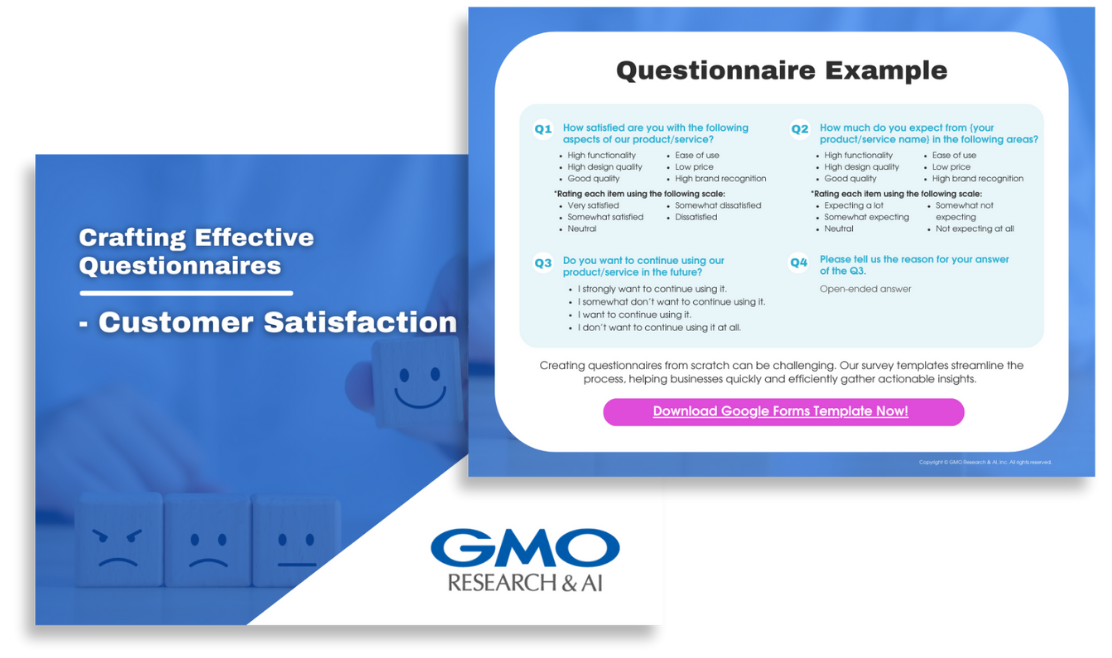Understanding the Net Promoter Score (NPS®): A Detailed Guide for 2025
2024/12/02

Understanding the Net Promoter Score (NPS®): A Detailed Guide for 2025
In our century´s highly competitive business environment, understanding customer loyalty is essential for sustained growth and further achievement. The Net Promoter Score (NPS®) emerges as a pivotal tool in evaluating customer loyalty, with its utilisation expanding notably—even among Fortune 500 companies.
What is the Net Promoter Score (NPS®)?

NPS® measures how likely a customer is to recommend a product or service to others. Unlike Customer Satisfaction (CS), which gauges satisfaction, NPS® evaluates customers' willingness to promote the product. The process includes an 11-point survey, where customers rate their likelihood to recommend on a scale from 0 to 10. The scale has 11 points (including 0), hence it is referred to as an 11-point survey, and this method produces very valuable insights into customer loyalty.
The calculation of NPS® is simple:
- Conduct a Survey: Ask customers, "Would you recommend this product to family and friends?"
- Classify Customer Types: Customers are divided into three categories based on scores (0-10):
- Promoters (9-10 points): Willing to recommend
- Passives (7-8 points): Neutral
- Detractors (0-6 points): Unlikely to recommend
- Calculate NPS®: Subtract the percentage of Detractors from the percentage of Promoters.
NPS® ranges from -100% (all Detractors) to 100% (all Promoters), with higher numbers indicating greater loyalty.
NPS® in Different Sectors: Industry Averages and Benchmarks
Numerical averages of NPS® vary by industry and country. Below is a table** that showcases the values for different sectors:
| Department | No. 1 company | Industry No. 1 Score | Industry Average Score |
|---|---|---|---|
| Securities Industry | SBI Securities | NPS -8.1 points | NPS -27.3 points |
| QR Code Payment Department | PayPay | NPS -24.5 points | NPS -38.2 points |
| Video Distribution Service Division | Netflix | NPS -2.0 points | NPS -22.7 points |
| Banking Sector | Sony Bank | NPS -22.9 points | NPS -44.1 points |
**Created by the author based on NTT Com Online's "NPS® Industry Rankings & Awards"
Why Implement NPS®? The Road to Customer Loyalty
Adopting NPS® brings key benefits to businesses, shaping it as one of the vital tools for growth.
- Cost-Effective Customer Retention
NPS® helps assess customer loyalty, leading to repeat business and fostering long-term relationships. By focusing on retention through NPS®, companies can reduce the financial burden of acquiring new customers, ultimately boosting profitability and sustainability.
- Strong Correlation with Revenue
A high NPS® not only reflects customer satisfaction but also indicates a greater likelihood of customer referrals. These referrals often translate into new business opportunities, driving growth and increasing revenue streams. The alignment between NPS® and actual revenue makes it a robust tool for evaluating the potential profitability of customer relationships.
- Building Trust
Regular NPS® measurements provide invaluable insights into customer preferences and expectations. By acting on these insights and demonstrating responsiveness to customer needs, businesses can reinforce trust and credibility. This strengthened trust translates into higher customer loyalty, supporting business expansion, and fortifying the company's reputation in the market.
NPS® vs. Customer Satisfaction (CS): A Critical Comparison
While both NPS® and CS serve valuable roles, understanding their distinct features can help businesses maximise their application:
- Vague Definition of Satisfaction
CS can be ambiguous, as "satisfaction" is a subjective term. It might not accurately predict customer behaviour or loyalty, leading to potential misunderstandings in assessing customer value.
- Less Correlation with Revenue
Though CS measures contentment, it doesn't always correlate with revenue or repeat business. A satisfied customer might not end up recommending the product, limiting the metric's effectiveness in driving growth.
- Beyond Mere Satisfaction
NPS® focuses on customers' willingness to recommend a product, offering more precise insights into loyalty and advocacy. Unlike mere satisfaction, NPS® aligns more closely with profitability, making it a robust tool for shaping business strategies.

Enhance Your Marketing with GMO Research & AI
In the current business climate, Net Promoter Score (NPS®) is more than just a metric; it's a tool for understanding customer loyalty and a guidepost for strategic decision-making. By asking customers how likely they are to recommend your product or service, NPS® provides valuable insights that can be leveraged to secure stable earnings and foster consumer trust.
GMO Research & AI, a leader in global survey studies, is here to assist with NPS® and other marketing surveys to elevate your business by enableing access to your target consumers across 16 regions in the Asia-Pacific through our Asia Cloud Panel.
Are you interested in taking your customer loyalty to the next level through NPS®? Contact us today, and let's explore how we can tailor our services to meet the specific needs of your business.
Disclaimer: NPS® is a registered trademark of Bain & Company.

